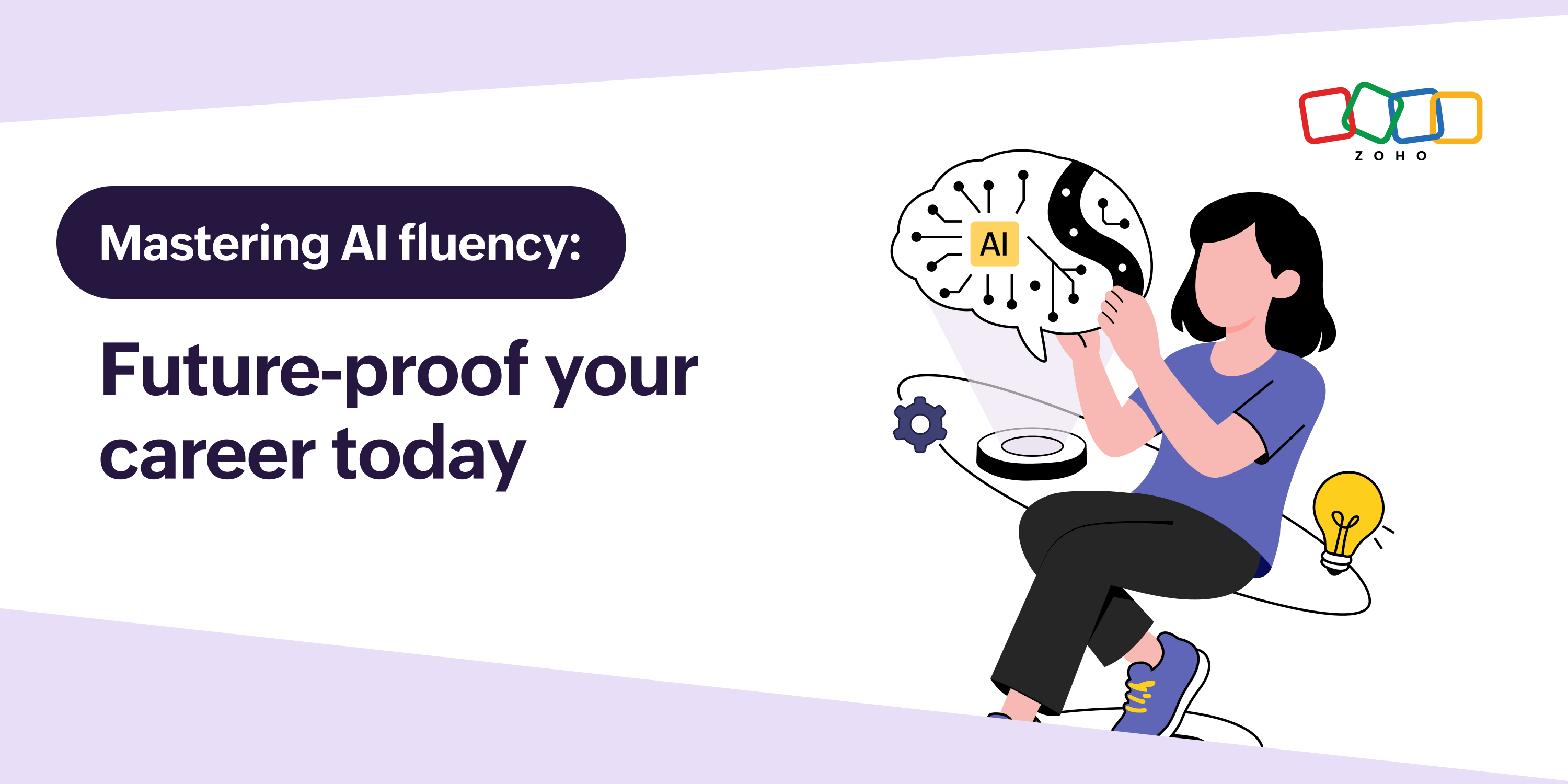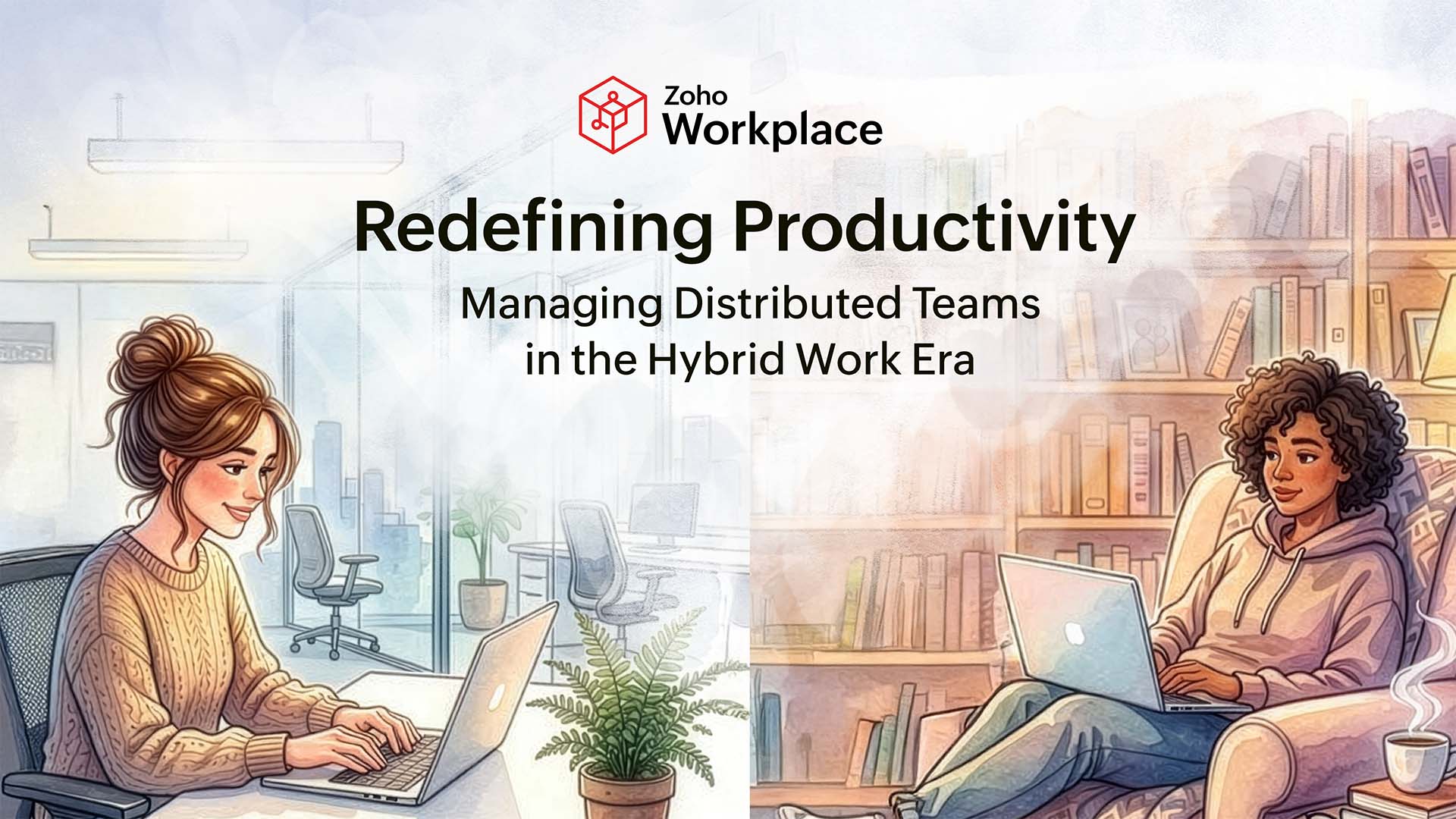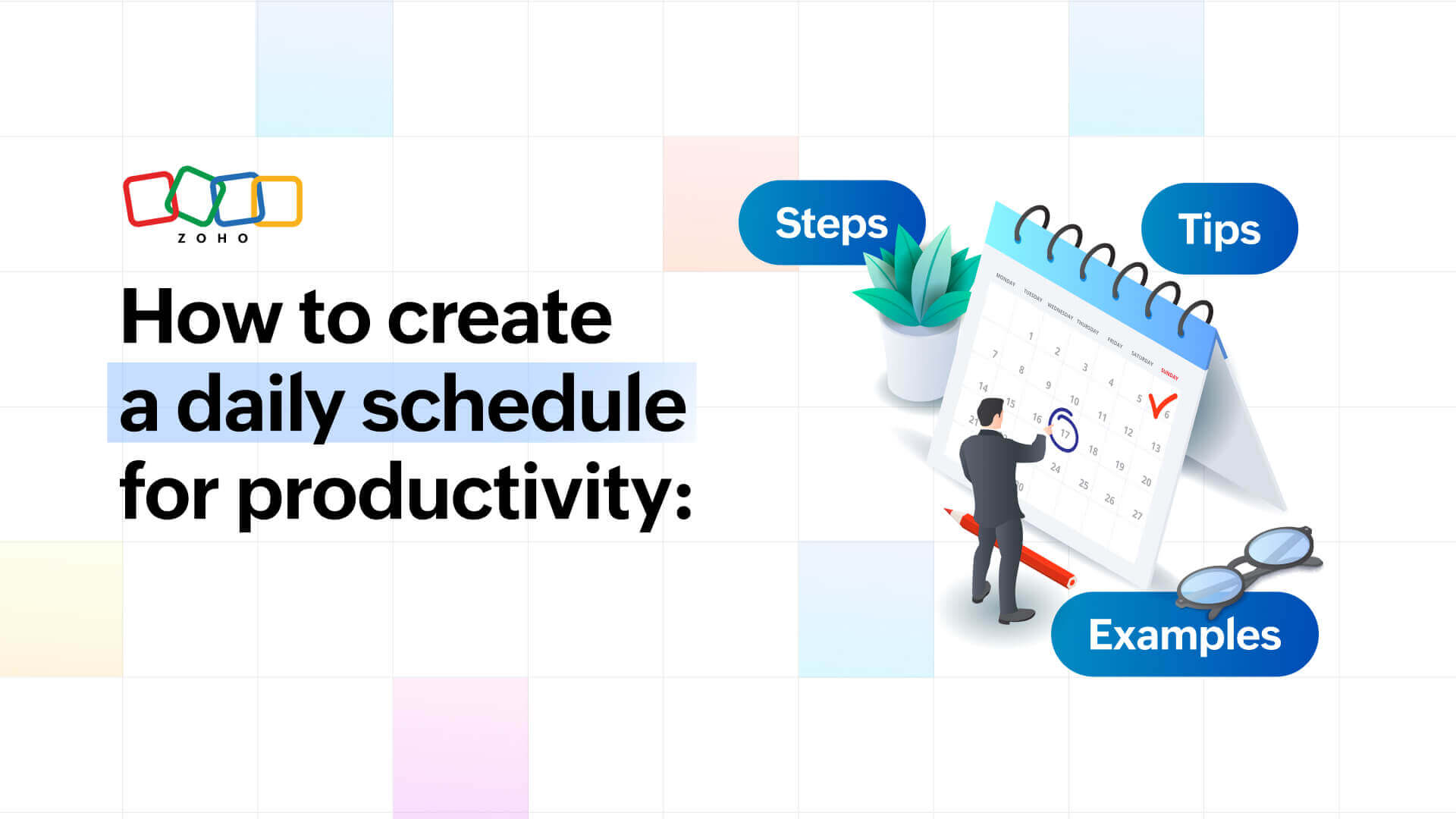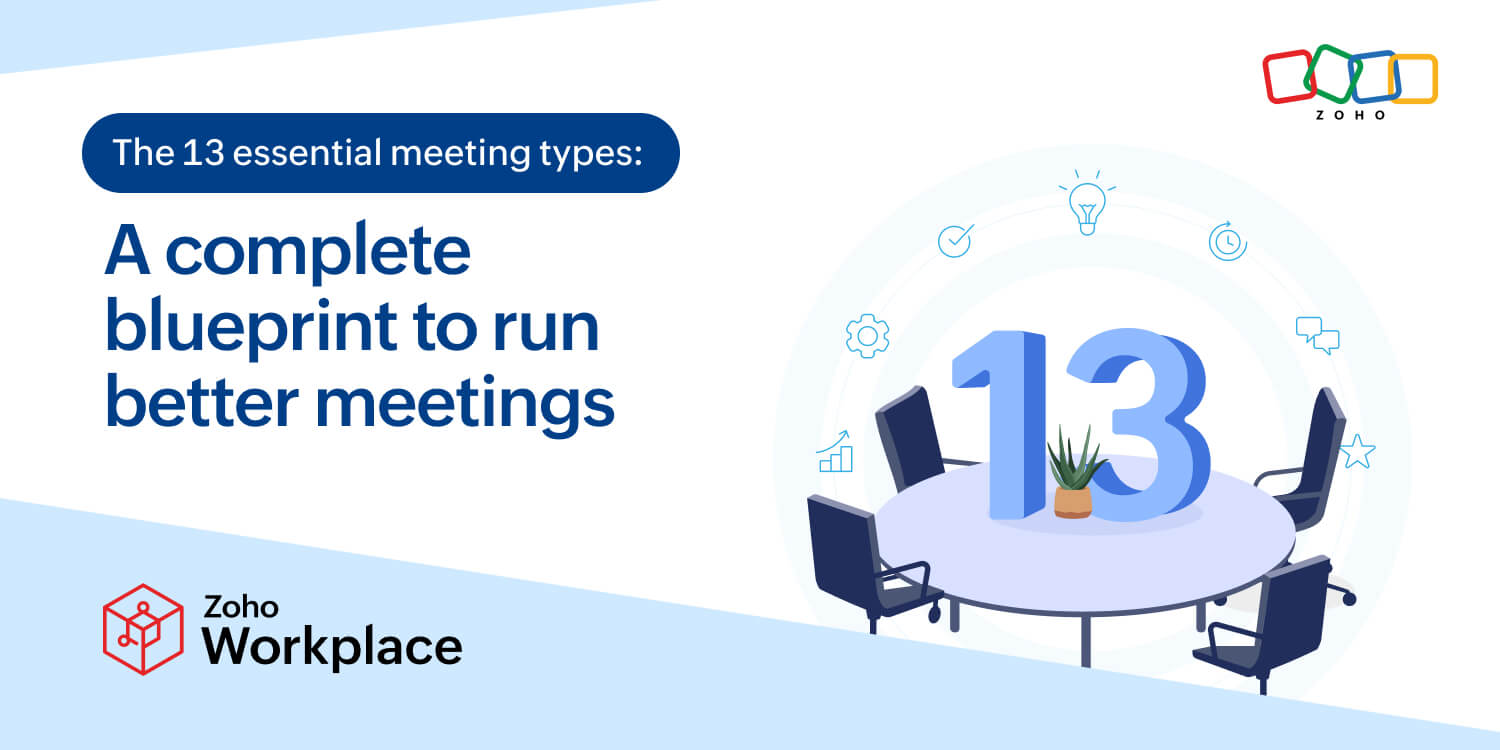- HOME
- All Topics
- Productivity in the workplace
- Mastering AI fluency: Future-proof your career today
Mastering AI fluency: Future-proof your career today
- Published : September 3, 2025
- Last Updated : September 3, 2025
- 847 Views
- 6 Min Read
AI is no longer limited to advanced use cases. It's become the norm for everyone looking to fast-track their career and improve their productivity. We have ready access to great AI models now. With the ability to speak fluently in their language, we'll be able to extract the most value out of them.
With widespread news of companies laying off employees worldwide due to AI, it's more important than ever to develop the trait of AI fluency. Building this ability can enhance your adaptability and value in an evolving job market.

What is AI fluency?
AI fluency is the ability to understand the capabilities of AI and leverage them strategically to achieve certain goals. It goes beyond using AI for simple tasks and delves more into problem solving, ethical considerations, and keeping up with new advancements.
AI fluency enables individuals to work together with AI rather than just using it. This drastically changes the way a person interacts with AI.
How does it translate in a workplace?
AI fluency sounds like a charm on paper. But how does AI look in a workplace? What are the key signs that indicate you're on the path to becoming fluent in AI? Let's find out.
Strategic application in everyday work
When you speak the AI language fluently, you can automate repetitive, less impactful tasks and augment the outcome of your creative work. You can use it as a powerful assistant to perform data-intensive tasks quickly.
Using it to foster human collaboration
AI can increase collaboration in your workplace with their advanced capabilities. Fluency in AI allows you to summarize audio from multilingual virtual meetings, generate creative ideas to enhance brainstorming, and bridge the gap between technical and non-technical teams through AI-assisted no-code platforms.
Maintaining a responsible ethical boundary
Going overboard with AI can sometimes land you in legal trouble with their notorious infringement practices. If you're fluent in AI, you'll know exactly when to stop and identify what information provided by them is usable.
Staying updated on emerging AI news
The race for AI supremacy is heating up, and new updates are dropping a mile a minute. Staying on top of these advancements is a telltale sign of AI fluency. This lets you add new tools to your AI arsenal and makes your workflow smarter with the latest capabilities.
Why is AI fluency the need of the hour?
Okay, so AI fluency can make you work faster and smarter and enhance your output. But what if you're comfortable with the traditional way of working? Is it really that important to get on board the AI train?
Yes! It's more important than ever to avoid being left out in this rapidly evolving tech landscape. Here's a few reasons highlighting its importance.
Faster decision-making
AI can analyze large datasets and trends and produce concrete reports that help you with swift decision-making. This is valuable in a workplace, especially for companies and teams that value speed and conviction.
Enhanced output level
The advent of AI-powered tools enables you to create more with a fraction of the time it used to take. With AI fluency, you'll be able to leverage AI to increase your output, which inherently makes you more valuable in your workplace.
Increased scope for innovation
By automating manual routines with AI, you focus your energy on highly strategic and creative tasks. Leveraging AI in this way amplifies your capabilities and opens the door to truly innovative solutions.
Competitive advantage
With AI, it's either get on board or get left behind. This holds true for both individuals and whole companies. Familiarity with AI lets you use it to analyze market trends, identify unique pain points, and create cutting-edge products before your competitors.
Faster upskilling and better job security
AI-powered platforms offer personalized learning paths and accelerate upskilling. This provides vital job security in an era dominated by headlines about AI disruption. Embracing AI equips you with the latest skills and makes you indispensable.
The contrast between AI fluency and traditional workflow
Role | AI-fluent employee | Traditional employee |
| Marketer | Rapidly generates ad copy using AI, runs A/B tests, and iterates based on performance data | Struggles with writer’s block, is skeptical of AI tools, and relies on time-consuming manual drafting |
HR | Leverages AI to analyze employee feedback and spot trends in sentiment early | Reads every comment manually, often missing key morale signals until they escalate |
| Developer | Uses AI to identify bugs, suggest fixes, and accelerate debugging | Manually inspects each line of code, leading to slower resolutions and frustration |
| Product manager | Uses AI to track competitors, synthesize market shifts, and prioritize roadmap features accordingly | Relies on manual research, often overlooking fast-moving competitor updates |
| Sales | Crafts personalized pitches using AI, increasing engagement and lead conversion | Sends generic outreach and struggles to connect with prospects meaningfully |
| Customer support | Summarizes complex support tickets with AI and responds quickly with accurate solutions | Responds to each ticket from scratch, consuming time and delaying resolutions |
How do you become fluent in AI?
We've explored the importance of AI fluency at work. But how can you speak its language fluently? Let’s break it down step by step.
Define the AI use cases in your domain
Defining the reason for learning AI is the crucial first step here. You need to ask yourself, "What outcome do I expect after becoming fluent in AI?" For marketers, this could be speeding up market research and compiling it into charts, but needs vary based on profession.
Understanding the fundamentals
Start with the fundamentals of AI before delving deep. This includes key concepts like basic machine learning, neural networks, and natural language processing. A strong understanding of these concepts will let you communicate with AI efficiently and harness its full potential.
Try AI hands-on in your work
Practical application is key to AI fluency. When you discover a new AI tool or workflow, implement it in your work wherever it's appropriate. Start small with simple automations, then scale up to custom AI bots that handle repetitive tasks and free up your creative time.
Keep up with emerging AI trends and tools
AI fluency is an ever-evolving language. Always keep a pulse on the latest insights by reading articles, following thought leaders, and listening to podcasts. With a front-row seat to the latest AI breakthroughs, you're guaranteed to become fluent in AI faster than others, giving you the competitive edge.

AI fluency in the real world
AI fluency isn’t a distant myth; it’s a present necessity. A lot of forward-thinking companies are altering their hiring process to emphasize the need for AI literacy.
Duolingo
Duolingo's CEO, Luis von Ahn, has urged his employees to learn the art of working with AI. He encourages them to experiment with AI tools in dedicated time. He sees AI as the means for one person to achieve more, and it can scale education to new heights.
Shopify
In his company-wide manifesto, Shopify’s CEO, Tobias Lütke, made AI fluency a mandatory skill in the workplace. Everyone is expected to be proficient in using AI tools. Managers requesting additional resources must justify why AI can't do that job. AI adoption is also factored into performance reviews, marking a major cultural shift.
Zapier
Zapier has fully embraced the AI culture in its hiring processes. New hires are expected to meet a particular standard for AI fluency. Zapier provides them with ample training to meet the bar set by them, and they measure the level of fluency across four categories.
Unacceptable: Resistant to AI tools and skeptical of their value.
Capable: Uses popular AI tools, with limited hands-on experience.
Adaptive: Embeds AI in workflows, tunes prompts, and automates tasks.
Transformative: Rethinks strategy and delivers user-facing value with AI.
What will AI look like in the future?
AI culture is prompting major companies to integrate it into part of their culture. This is evolving from simply knowing the tools to making them part of their day-to-day work. What does this mean for the future?
Shaking up the job market
With the current pace of AI, 22% of current jobs will undergo structural change by 2030—14% will be new roles created and 8% will be jobs eliminated. All repetitive tasks will be delegated to AI, and the job market will benefit employees who pair their domain expertise with AI orchestration.
Working alongside AI will be normal
As AI becomes integral to daily workflows, working with AI agents will soon be as routine as working on a computer. They aren't here to replace humans but to aid in decision-making, helping with manual repetitive tasks and data-heavy work. This will allow employees to dedicate more time to high-impact strategic tasks.
Roles that will most likely disappear
AI isn’t the big bad wolf coming to steal jobs; it's a smart sidekick that helps you work smarter, granted you embrace this innovative technology. Microsoft, in their recent study, predicted that few roles will disappear due to AI. The onus is on us to upskill, adapt to working with AI, and future-proof our roles.
Summing up
AI fluency is the skill of translating workplace goals into AI-powered outcomes for a boost in productivity. This is a huge wave, just like the era of digital literacy of the 2000s.
AI is redefining the way organizations work now. Future-proof your career by mastering the skills needed to leverage AI for greater productivity. AI fluency is your golden ticket to turning AI from a buzzword into a practical skill that amplifies your impact at work.
 Rohan
RohanRohan Samuel is a product marketer for Zoho Workplace who talks about workplace security, productivity, and collaboration. He is a highly enthusiastic writer who delights in evoking visual imagination with words. He also enjoys playing football with his buddies and traveling to new places.


